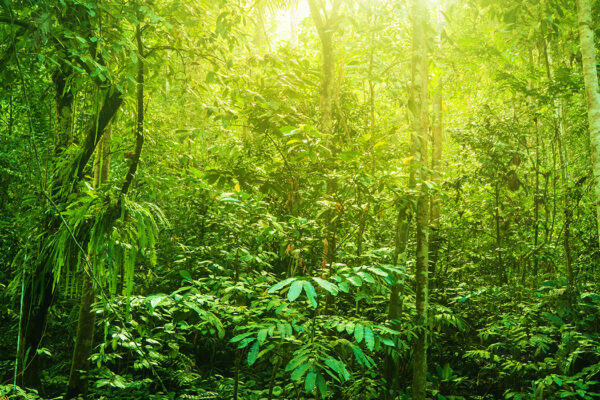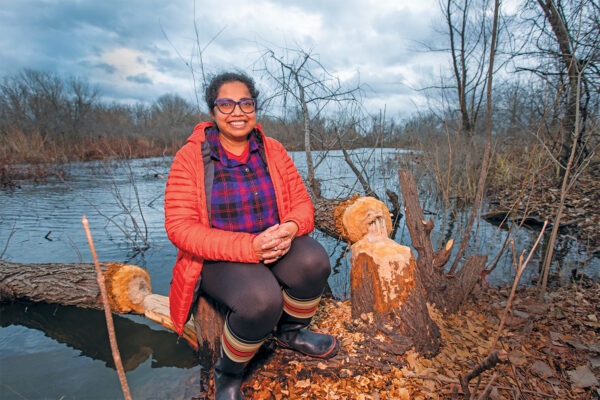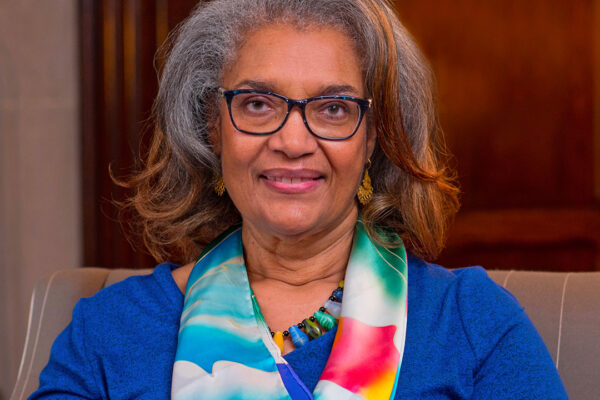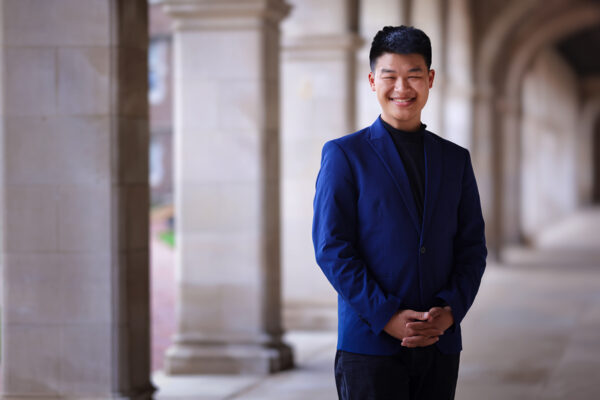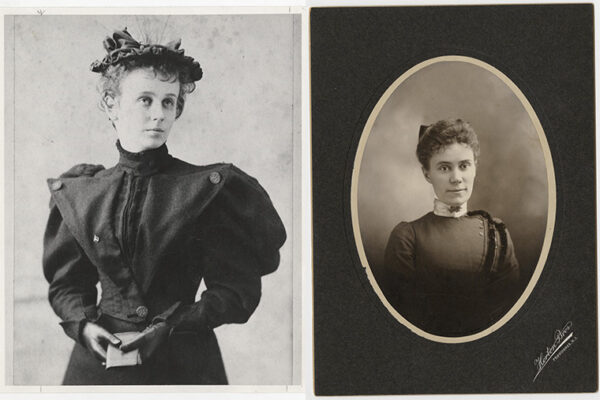Changes in vegetation shaped global temperatures over last 10,000 years
Alexander Thompson, a postdoctoral research associate in earth and planetary sciences in Arts & Sciences, updated simulations from an important climate model to more accurately reflect the role of a greener Sahara and the coniferous and deciduous forests of the mid-latitudes and the Arctic.
Montaño’s work named best book by Latin American studies group
Diana Montaño, assistant professor of history in Arts & Sciences, has won the Alfred B. Thomas Award for her book “Electrifying Mexico: Technology and the Transformation of a Modern City.”
Into the wild
Biologist Arpita Bose explains the importance of wetlands and the microorganisms living there to capture carbon — and to possibly provide solutions for a clean energy future
Karibu nyumbani, welcome home
How did alumna Freid Brown end up the first woman to lead a chartered university in Kenya? According to Brown, it wasn’t by design.
Making life-saving medicine available
Michael Holmes was determined to make a difference, and with a little guidance from above, help from pharmaceutical companies and some ingenuity, he started saving lives with Rx Outreach.
Arsalan Iftikhar: Combating fear of a Muslim planet
Arsalan Iftikhar, AB ’99, JD ’03, has spent his career speaking out against Islamophobia. In his new book, “Fear of a Muslim Planet,” he writes that the need to stand against hate is more urgent than ever.
Student Union’s Miao awarded Truman Scholarship
A passionate and effective champion of LGBTQ+ rights, Washington University in St. Louis junior Ranen Miao has been awarded a Truman Scholarship, the premier graduate fellowship in the United States for those pursuing careers in public service.
Arts & Sciences recognizes six alumni
Arts & Sciences recognized six alumni for their achievements, service and commitment to the liberal arts during its Distinguished Alumni Awards dinner, held March 24 at the Ritz-Carlton, St. Louis.
Reynolds named Luce/ACLS Early Career Fellow
Elizabeth Reynolds, a postdoctoral fellow in history in Arts & Sciences, has been awarded a Luce/ACLS Early Career Fellowship in China studies.
‘Bull in a China Shop’
As longtime president of Mount Holyoke College, Mary Woolley helped to transform university education for women in the United States. In a new production of “Bull in a China Shop,” the Performing Arts Department will explore Woolley’s groundbreaking career and her decades-long relationship with Jeannette Marks, chair of Mount Holyoke’s English department.
View More Stories
